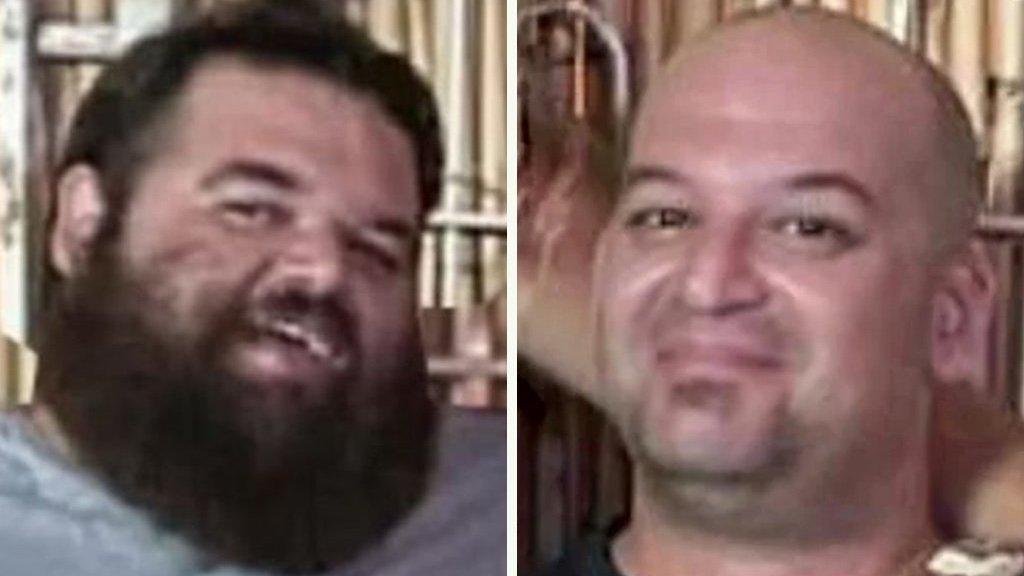For many Israeli hostage families, the painful wait goes on
- Published
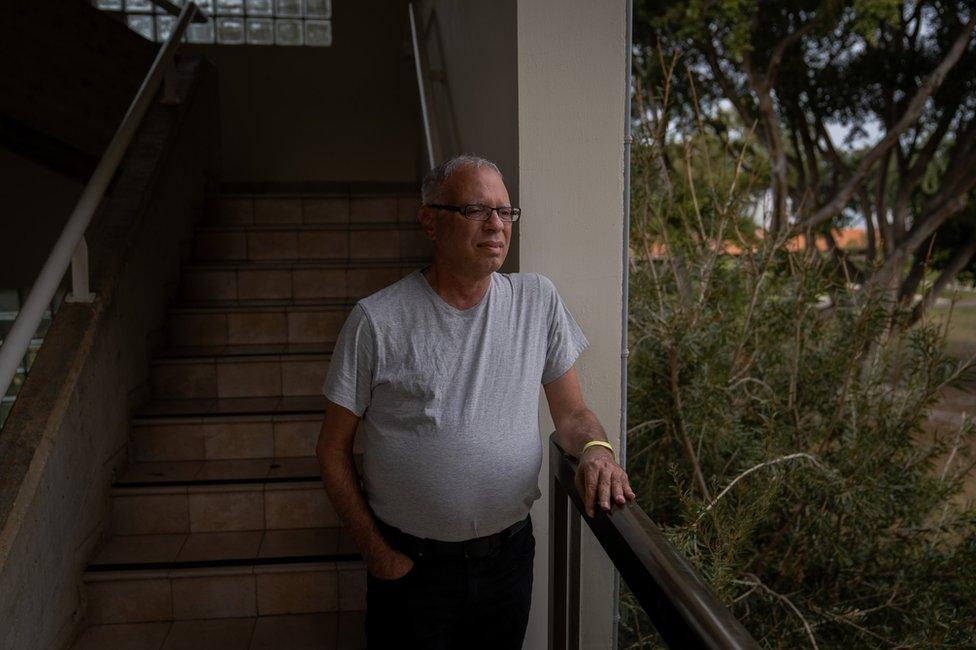
Avi Shamriz's son Alon, believed to be among the hostages, was not expected out this weekend. "My son does not deserve it," he said.
Avi Shamriz was keeping busy during the day. No job was too small. The families in the hotel needed new clothes, new phones. The free shop needed be kept stocked. Movies for the kids. A birthday party. He wandered the grounds, checking in on people.
"I don't stop," he said.
But at night, when the hotel was quiet and the small jobs were all done, Avi could no longer distract himself from thinking about his son.
"I'm thinking, is he safe? Are they treating him well? Does he have enough food? Is he sick, is he injured? Does he have clothes to wear? He is in a tunnel, do they have a shower? It must be dark there. Is it cold?"
Alon Shamriz, a 26-year-old student of computer engineering from the Kfar Aza kibbutz near the border with Gaza, is believed to have been taken hostage when Hamas stormed the kibbutz during its 7 October attack on Israel.
This is what the family hopes - that he is in Gaza. They know that Alon was not found among the dead.
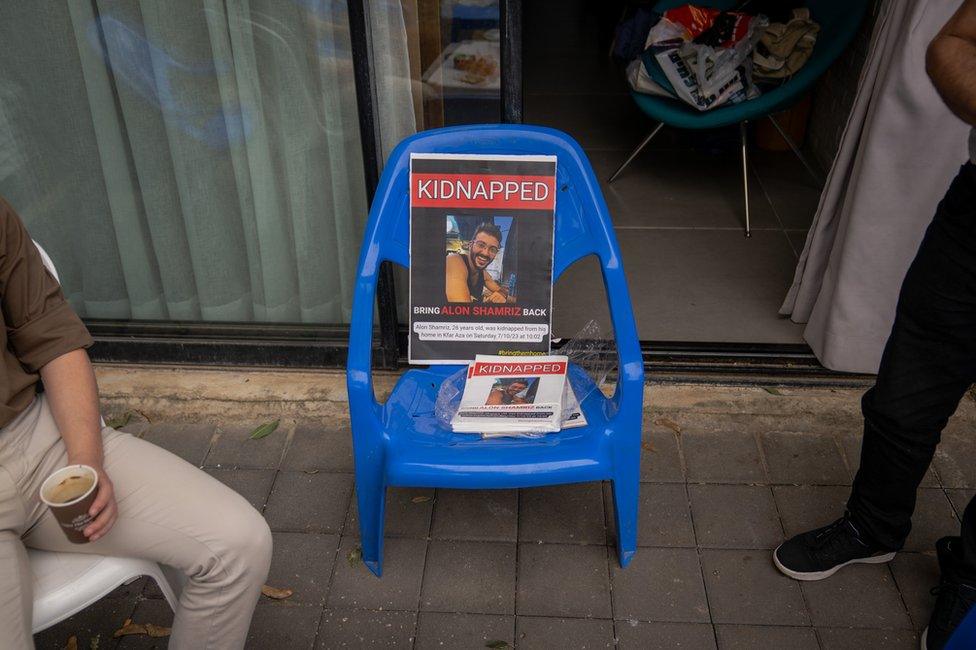
A poster of Avi's son, Alon Shamriz, who has been missing since 7 October.
On Friday afternoon, Avi and his family were sitting in the grounds of a hotel near Tel Aviv that is now home to about 400 people displaced from Kfar Aza. Dotted among the families at the hotel are a few like Avi's, with loved ones among the hostages.
As Avi sat on his garden chair, describing his sleepless nights, all of Israel awaited the release of the first 13 hostages in a few hours' time, in exchange for 39 Palestinian prisoners.
It was a day of mixed emotions. Dozens of families knew that their loved one would almost certainly not be among the 50 hostages due to be released as part of the deal struck between Israel and Hamas, because mothers and children had been prioritised.
"On one hand, I am happy that this has begun, because it might continue," Avi said.
"But right now I don't trust anyone. I don't trust Hamas, I don't trust my own government to keep doing the right thing. So, I have nothing. Only to wait."
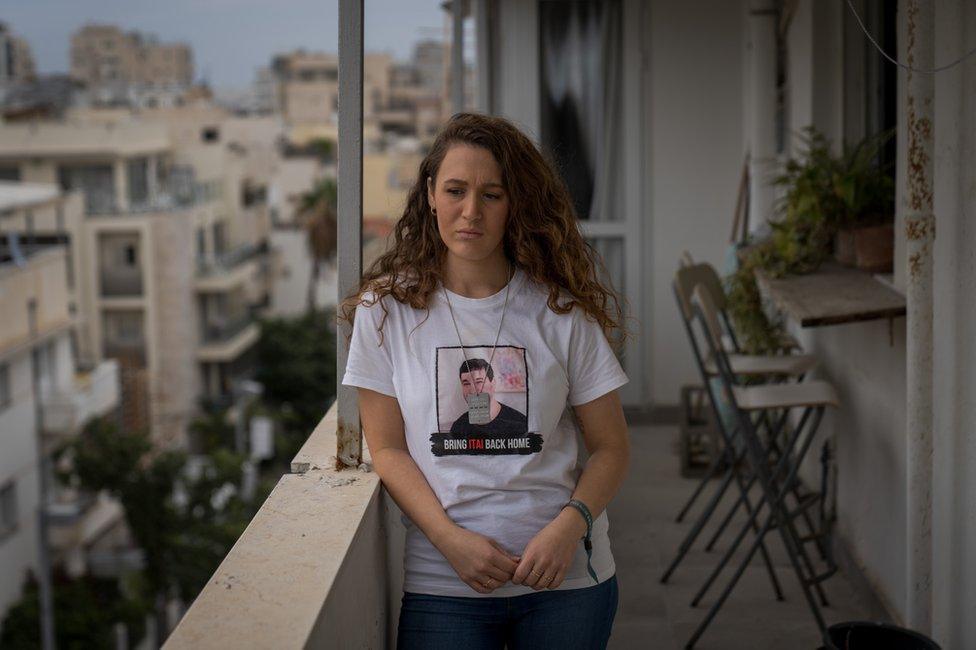
Naama Weinberg, wearing a t-shirt for her cousin Itai. "The healing process is going to be extremely difficult," she said.
All over Israel this weekend, families were bracing for footage of the first hostages being returned home, knowing that their pain and uncertainty would endure.
Naama Weinberg, whose cousin Itai Svirsky, 38, is also believed to be among the hostages, watched the exchange from her apartment in Tel Aviv.
"I sat in front of the news for hours, my eyes glued to the screen," she said on Saturday. "I was crying from happiness and joy, I texted the families of the people who came out to send them love."
But there was also some jealousy, she said. "Itai is my cousin. He is my family. I want everyone back, of course, but I really want him back."
Along with some other hostage families, Naama's family is facing a daunting scenario: both of Itai's parents were killed in the attack but it isn't clear whether he knows.
"He was with his mother at the house when the attack happened, but we don't know what he saw," Naama said. "Did he see her being murdered before he was taken? Or was he taken before she was murdered?
"Was her son being taken away the last thing my aunt saw?"
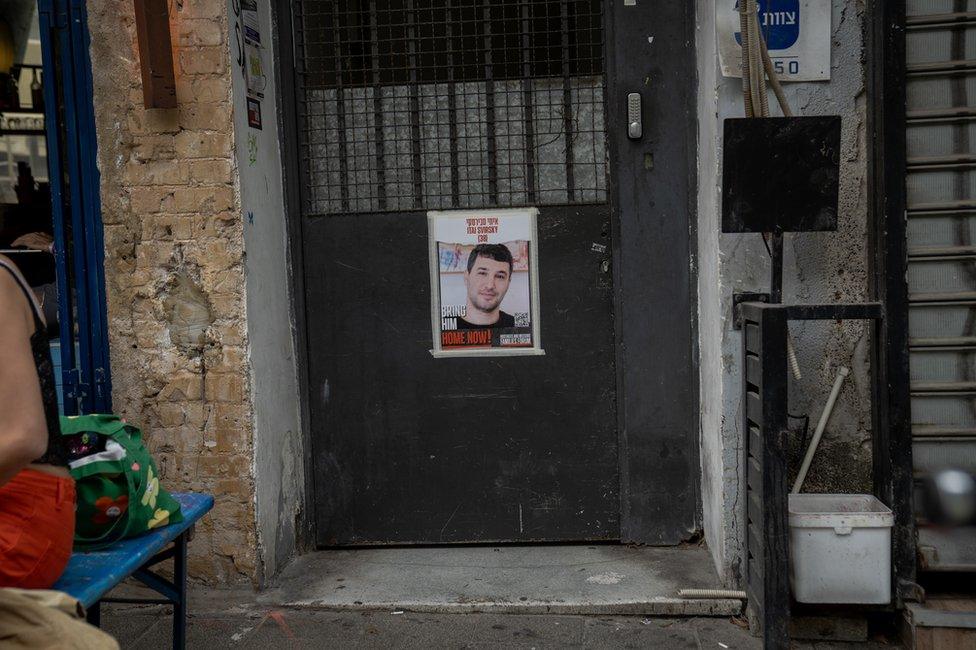
A poster of Naama's cousin Itai in central Tel Aviv
The family knew they would have to break it to Itai that his father, who was killed in a separate building, was gone.
"The healing process is going to be extremely difficult," Naama said, tears forming in her eyes. "Itai is going to come home an orphan."
By the end of Monday, 50 Israeli hostages should have been released along with 15 foreign nationals, and 150 Palestinian detainees freed by Israel in return, facilitated by a four-day ceasefire.
Israel has prioritised the release of the elderly, mothers, and children. About 150 Israelis will still be in Gaza, their families forced to endure longer.
"I want to hope, but I don't think she will be involved in this deal," said Yamit Ashkenazi, whose 30-year-old sister Doron, a veterinary nurse, is believed to be in Gaza.
Like a few of the relatives, Yamit has a new tattoo. It reads, 'As the sun we will rise again,' but some of the sun's rays are missing. "They will be added when she is home," Yamit said.
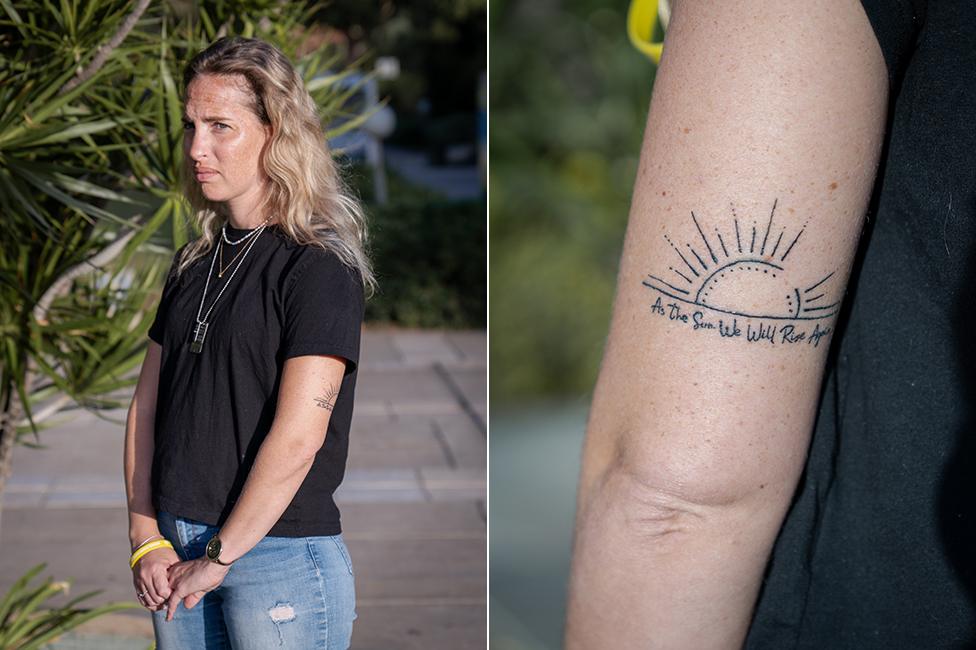
Yamit Ashkenazi has a new tattoo, to which she will add missing rays of sunshine when her sister returns.
Israeli authorities did not confirm to family members in advance whether their loved ones were expected to be released this weekend or not, but families like Yamit's - and Avi's and Naama's - had already reconciled themselves to the fact that their relatives did not fit the criteria.
"I am a mother also, so I understand why the children have to come out first," Yamit said. "But Doron is my parents' young daughter. She is a human being. Behind every number there is a person with a story and relatives. So we must get them all back, not just certain categories."

More on Israel-Gaza war
Follow live: Latest updates
Watch: Moment Israeli boy reunites with dad after hostage ordeal
Gaza Strip mapped: Life in Gaza under siege
Explained: Who are the released hostages?
Israel-Gaza briefing: When truce ends, the decisive next phase of war begins
History behind the story: The Israel-Palestinian conflict

Yamit and her parents were preparing on Saturday to travel to central Tel Aviv for a massive rally to call for all the hostages to be brought home. This rally was going to be particularly big, to coincide with the first hostage release, but Yamit's family had been going every Saturday to the newly renamed Hostages Square, to call for everyone to be brought back.
Naama Weinberg was also at the rally. "It's exhausting to fight this fight, but we can't quit until he's home," she said. "Until all the hostages are home."
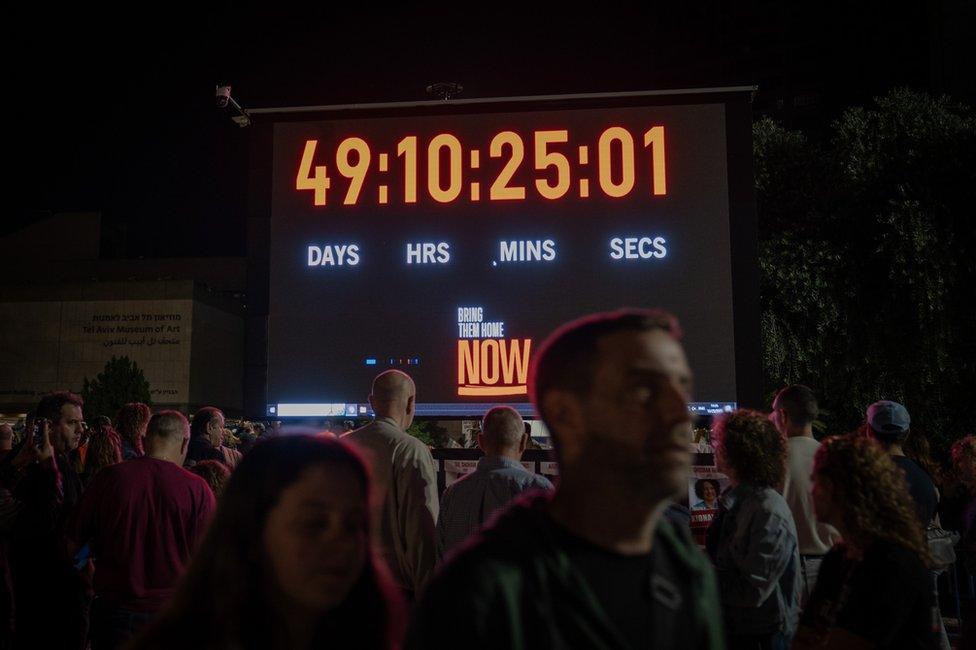
A big screen at the rally on Saturday showed how long the Israeli hostages had been in Gaza.
The exhaustion was visible on Naama's face, and on the faces of the other family members who were still waiting. They had endured 50 days of campaigning, of media appearances, of lying awake at night thinking about their loved ones in Gaza. The deal this weekend had given them some hope, they all said. But it also brought fear that something could go wrong.
"I'm scared that it might give the world the feeling that the trade is done, that we got some of the hostages back and it will all quiet down," Naama said.
"The situation is very sensitive, anyone can blow it," Avi Shamriz said. "Someone says something wrong, somebody shoots someone, and we are back to square one."
And then there was the bombing of Gaza, Avi said. "The government say they are being careful, but you cannot be careful when you are dropping bombs," he said. "You just don't know who you are going to hit."
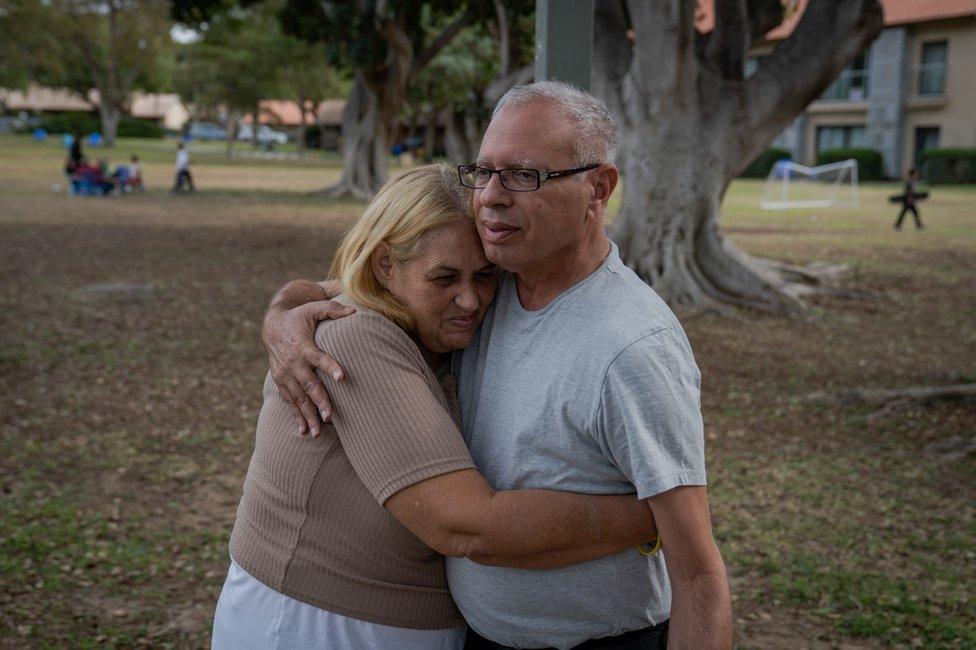
Avi Shamriz, who's son is missing, hugs Simona Steinbrecher, whose daughter Doron is also believed to be in Gaza.
As the hostage families gathered with thousands of others in central Tel Aviv on Saturday night, Avi was back in his hotel room. He did not believe in the power of the rallies. He thought they were counter-productive. "I am doing my best to do work behind the scenes," he said.
He was also quietly preparing for his son's return. Alon's Toyota Camry was destroyed in the Hamas attack, so a few weeks ago Avi set up a fundraiser to buy him a new one. When Toyota Israel found out, it donated a used Camry for free.
"It doesn't have a sunroof like Alon's did, but that's OK," Avi said. "It will be ready for him when he comes home."
Idan Ben Ari contributed to this report. Photographs by Joel Gunter
Related topics
- Published26 November 2023
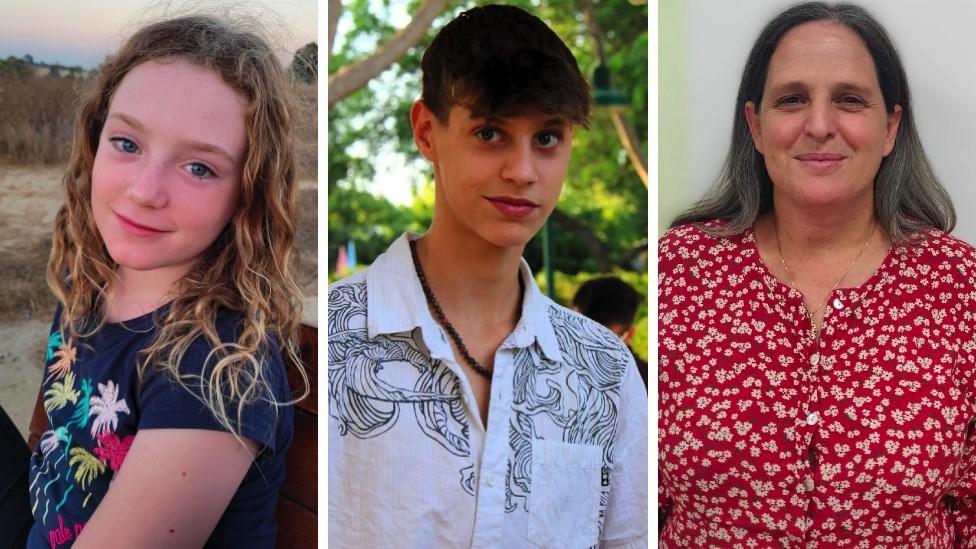
- Published27 February
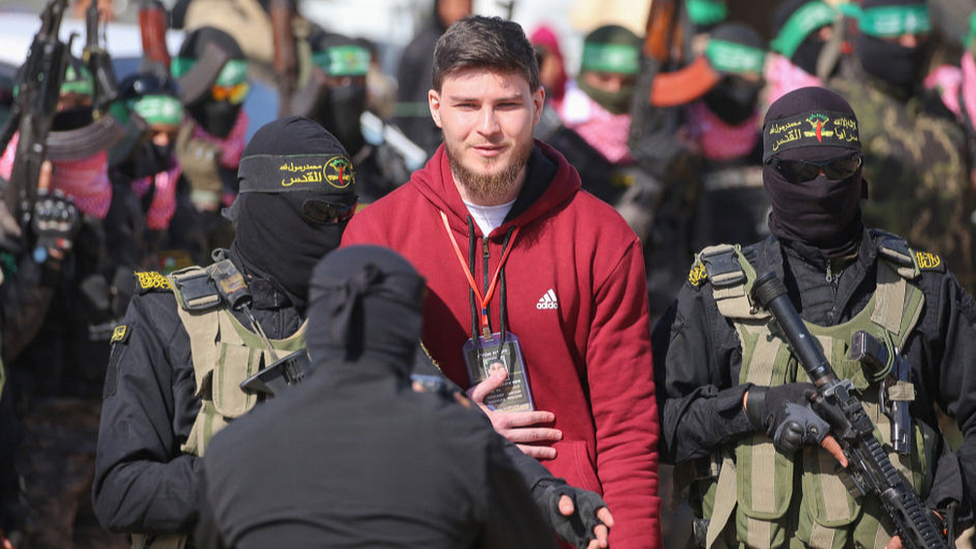
- Published27 February
